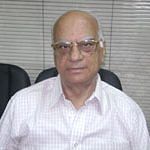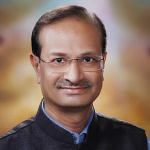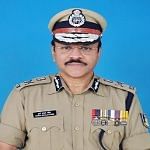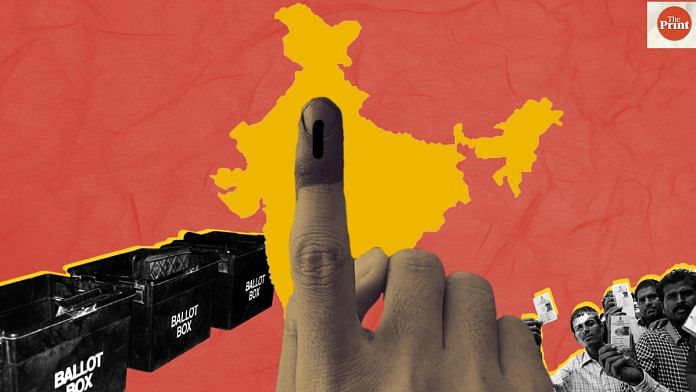The Election Commission announced Sunday that the 2019 Lok Sabha elections will be held in seven phases from 11 April to 19 May. The results will be announced on 23 May.
The 2014 elections, which brought the Narendra Modi government to power, were carried out from 7 April to 12 May.
ThePrint asks: Is it justified for India to have Lok Sabha elections in 7 phases over 6 weeks in 2019?
It is unfair to compare as every election year comes with its own set of challenges
 S.K. Mendiratta
S.K. Mendiratta
Former legal adviser to the Election Commission
The Lok Sabha elections in India are always required to be conducted in multiple phases, and the number of phases may differ. It is immaterial that it is 2019. Many things may still go wrong and the Election Commission needs to account for those and plan in advance. Every election year comes with a unique set of challenges, and it is unfair to compare the 2019 elections with the 2014 elections, or any other election for that matter.
Maintaining law and order is an extremely challenging task during elections. Deployment of police personnel is also a key issue that commentators often ignore. Ultimately, the Election Commission has to work in tandem with the police forces. If the forces reckon that they will be able to work more effectively over a period of multiple days, then the Election Commission has to oblige. After all, it is they who have to move from one place to another in a short span of time.
As far as resources are concerned, it isn’t as if increment in the number of phases leads to a tremendous increase in the resources utilised. Every constituency has to work with a limited budget, and the allocation is done keeping all things in mind.
Multiple-phased polling defeats the purpose of not influencing the voters’ decision
 Sanjay Kumar
Sanjay Kumar
Director, CSDS
With so much debate around ‘One Nation, One Election’, we will hold an election in seven phases. What is surprising is that while big states like Tamil Nadu, Andhra Pradesh, Telangana, Gujarat and Punjab will vote in one phase, polling in states similar in size (West Bengal, Uttar Pradesh and Bihar) will be held in seven phases.
One of the biggest surprises is the schedule for election in Anantnag Lok Sabha seat (in Jammu and Kashmir) — the polling here will be held in three phases. In my memory, there has hardly ever been an instance of a constituency going to poll in several phases. I also fail to understand how come the state is prepared for the Lok Sabha election but not for the assembly election.
There are more such wonders. States where assembly polls were held in single phase for large number of constituencies (Rajasthan 200, Madhya Pradesh 230) now require multiple phases for the Lok Sabha polls. The phases are largely linked to security reasons. Has the law and order deteriorated to such an extent in these two states that they needed polling in phases?
The logic behind ending the campaign 48 hours in advance is to allow voters the peace of mind for careful thinking about their voting decision without being influenced. A multi-phased voting defeats this purpose.
It’s right to question the EC but being cynical about its motives is toxic for democracy
 Alok Prasanna Kumar
Alok Prasanna Kumar
Senior Resident Fellow, Vidhi Centre for Legal Policy
Any argument against the Election Commission’s decision to hold the 2019 general elections in seven phases proceeds from a position of ignorance. It’s unlikely anyone outside the EC has the expertise in handling the security and logistical challenges of getting 90 crore people to vote.
The EC’s task is unenviable, given the capacity of the Indian state, and it is never going to be able to please everyone. While the EC has attempted to answer ‘why’ questions, it can never satisfactorily answer the “why not” questions.
Comparisons to 2014 are also not particularly helpful. The security situation in Kashmir has deteriorated (thanks in no small part to the Modi government’s approach), and the logistical challenges of an election involving at least 10 per cent more voters than the last time are enormous. Some trust is called for in the EC, and while it must be questioned and held to account, cynicism about its motives is toxic for our democracy.
The quibbling over phases ignores deeper questions: why do we need central police and armed forces to conduct elections? And why is it that local police are not trusted to be neutral or competent enough to conduct free and fair polls in “sensitive areas”?
These are tough questions worth engaging perhaps not just when elections are announced, but also in the period in between. Democracy can’t begin and end with the ballot.
Also read: Why Model Code of Conduct for elections cannot act against offending politicians
More phases in Odisha and not holding assembly polls in J&K is questionable
 Ajai Sahni
Ajai Sahni
Executive director, Institute for Conflict Management
While the security situation, barring in Jammu and Kashmir, has significantly improved across the country in the last few years, orchestrated social tensions and political violence have become comparatively widespread. The electoral context has also become extremely polarised. Some of these factors may have gone into the assessment of the Election Commission.
That said, some decisions of the poll panel do need further explanation. For instance, in Odisha, polling phases have increased from two (in the 2014 Lok Sabha elections) to four this time. Odisha witnesses no significant violence today, with the exception of a few Maoist-affected areas concentrated in extremely small pockets. In fact, the 2014 elections were held when the scope of Maoist violence was much greater. Thus, increasing the number of phases for this election is definitely questionable.
In the case of Jammu and Kashmir, of course, we have to analyse things through a different lens. While Anantnag remains among the worst-affected areas in the state, it is sixth among districts with terrorism linked fatalities and incidents of stone pelting in 2018. However, elections in phases could be justified in terms of focused assessments of the situation on the ground. But I do not understand why we cannot have the Assembly elections in Jammu and Kashmir, when we can conduct the Lok Sabha elections. That, to my mind, is not a security decision but a purely political one.
Ideal if elections could be held in one or two phases, but there aren’t enough forces
 Durga Prasad
Durga Prasad
Former DG, CRPF
Logistics and availability of forces often end up determining the number of phases. There is a limited number of people in the forces and they have to travel the entire breadth of the country in little over a month. Even during the state elections, the forces face serious challenges, so one can only imagine how difficult it gets during Lok Sabha elections.
This means that there is a grave problem that is directly related to the number of phases election is held in – the movement of forces. Remember, the forces also need some break in their extremely hectic schedule. Every seventh day, they will be moving to a new place. Once they reach the state headquarters, they will be deployed to the district headquarters and then finally to the polling stations. This means that an officer will be sleeping in a new place effectively every single day. This is an extremely taxing affair for the forces. Added to that, often the train services are horrible and the overall condition is pathetic. Unless someone has taken this journey with the forces, they wouldn’t know the kind of hardships they have to face.
It is these challenges that need to be addressed head on to make the process easier for our forces.
Ideally, if the elections can be conducted in one or two phases, nothing like it. But there just aren’t enough forces for that. The number of phases ultimately need to accommodate force movement.
It puts us in a bad light as a nation that we still can’t hold elections in 2-3 phases
 Maneesh Chhibber
Maneesh Chhibber
Editor, Investigations and special projects, ThePrint
Although the number of phases for Lok Sabah election has come down by two, there is simply no justification for so many phases – neither nine in 2014 nor seven in 2019.
Elections in any democracy, even one as huge as India, can’t be stretched for so long, especially now that we are living in a digital world. Can we even afford to keep the dance of democracy on for 39 days? Won’t it lead to voter fatigue, increased cost – not that the major political parties have much to be worried about when it comes to funds — and governance coming to a near stop during the election season?
While the model code of conduct (MCC), now in place, doesn’t bar the governments and the bureaucracy from doing the everyday tasks, if one goes by the thousands of MCC-related clarifications that land up in the Election Commission’s office and the offices of chief electoral officers in the states, the reality is completely different.
One reason – and a very problematic one – that we will continue to have a multi-phased election is the concerns over security and the need to ensure that everyone feels secure enough to participate in the electoral process.
But weren’t things supposed to have improved substantially since May 2014? If we can’t even hold elections in 2-3 phases, doesn’t it show us in a bad light as a nation that can’t even hold its elections in a suitably acceptable timeframe?
By Fatima Khan, journalist at ThePrint.




Whatever Prime Minister Modi wants EC m to do is justified.
Security is the dominant concern / constraint. 2. It does not speak well of how things are in Kashmir that the Assembly election cannot be held along with the Lok Sabha poll. Three phases for a single Lok Sabha seat. Five phases for such a small state. 3. Very happy that VVPAT facility will be available in each polling booth. Paper verification sets minds at rest. It should be done for a lot more than one booth per assembly segment.